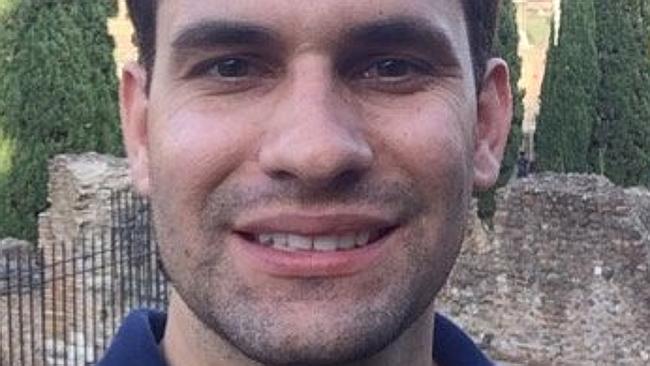Books are not dying. In fact, they’ll always endure, writes Angela Mollard
YOU won’t have heard of David Willis. You could have — indeed, you should have — were he not a rolled gold lunatic, writes Angela Mollard.

YOU won’t have heard of David Willis. You could have — indeed, you should have — were he not a rolled gold lunatic.
Willis is an American tourist who 10 days ago found himself locked in a bookstore after closing time. Faced with row upon row and floor upon floor of books at the marvellous Waterstones in London’s Trafalgar Square, what do you think he chose to do? Roam the shelves dipping into John Grisham or Donna Tartt? Design his fantasy home with a flick through Best Beach Houses of the World? Lounge in the kids’ section with Dr Seuss at 5am, deliriously stuffed full of words?
No, the great goose failed to see the adventure, or even the commercial potential of a “Night At The Museum” sequel and instead tweeted messages pleading to be let out.

Willis is from Texas, which explains a lot. He’s easy on the eye in a Ben Affleck kinda way, which makes it doubly annoying that he didn’t have the foresight to parlay his experience into a book/film/talk show deal. Quite why he was even in a bookshop when he’s got no radar for a cracking story is confounding. Perhaps he was browsing gun maintenance manuals.
“I’m free,” he tweeted just after midnight, which goes to show you can lead a boy to books but you can’t equip him with irony. It took a fellow tweeter to observe: “Waterstones guy’s out. Dazed, wrapped in foil blanket, helicopters overhead, couple of Catherine Cooksons down his Y-fronts.”
There are few things that’d make me happier than being locked in a bookstore overnight. Except perhaps being hand-delivered a bacon and egg roll at 7am after being locked in a bookstore overnight. Preferably with barbecue sauce.

After 18 months spent writing, editing then spruiking my own book, I’m finally back to reading them and, oh, the magnificence: Lena Dunham’s fresh Zeitgeisty stream of consciousness; David Hunt’s wryly written “Girt”; David Nicholls on marriage; Alain de Botton on sex; Tim Winton, astute, gritty, lyrical on … well, everything.
For a while there, we thought books were going the way of VHS. In 2011, the Los Angeles Times sounded the death knell on publishing, reporting that Ikea was making its popular Billy bookcase deeper to accommodate ornaments since “nobody has books anymore”.
The same year, Angus and Robertson closed all its stores. Every home I went into seemed stripped of books, which was dispiriting when one of the easiest ways to break the ice is to discuss what someone’s reading. Those who did display books appeared to have colour-coded them, proving writer Mireille Silcoff’s theory that “when a book becomes pure decor it ceases to live its intended life.”
But the death of the book was greatly exaggerated. Yes, we may be changing what we read and how we read, but the book is the denim jacket of culture: timeless, relaxed, comfortable in any context. It’s adapted brilliantly to electronic devices, serialisation, fan fiction and social media in a way that its cultural counterparts can only hope to ape. I’m loathe to critique any art form, but with touring bands charging ludicrously, cinema full of indulgent, overlong refranchised remakes, art galleries still posting floral and pompous descriptions below exhibits, and opera tutting about characters smoking on stage, books seem like The Little Engine That Could. Shop around and you can download one for less than a $5.50 ChocTop.

Stephen Fry once said that books were no more threatened by the Kindle than stairs by elevators. He’s been proven correct, because just as a department store offers both modes, so many homes embrace books in both digital and dinosaur format. In fact, I’d venture that in this click and flick, hyper-screen age, many of us are returning to the therapy of page turning.
“It feels so satisfying,” says a friend. “It’s soothing and tactile and there’s something enduringly elegant about a cream page.”
Recently, I borrowed a couple of books. Charmingly, each told a tale beyond its words. The first was inscribed to a friend and her former boyfriend. “Oo, who was he?” I asked and was given a detailed description of a glorious love affair. The other was a dry book called Making Money (I know, kill me now) and on page 274 under the heading “Should you leave money to your children?” I found a boarding pass that had been repurposed as a bookmark.
“Imagine if you collected all the boarding passes from throughout your life,” I said to my friend. “Imagine the stories they’d tell.”
Books will always endure because they offer adventures beyond our own. As life becomes more tense, more taut, words will creep into the tight places that work creates but wine can’t soothe. David Willis will rue squandering his night in the bookshop, because it’ll always be his story that wasn’t.
As Philip Pullman once wrote: “Thou shalt not is soon forgotten, but Once upon a time lasts forever.”
Email: angelamollard@gmail.com
Twitter: @angelamollard




